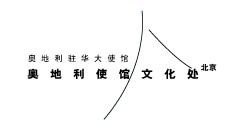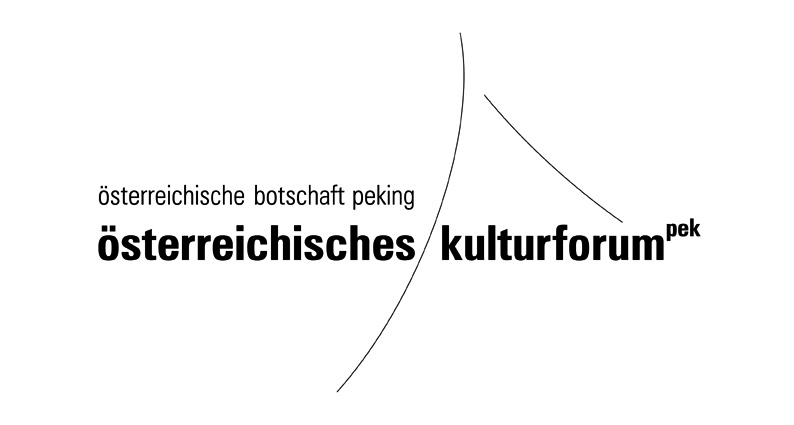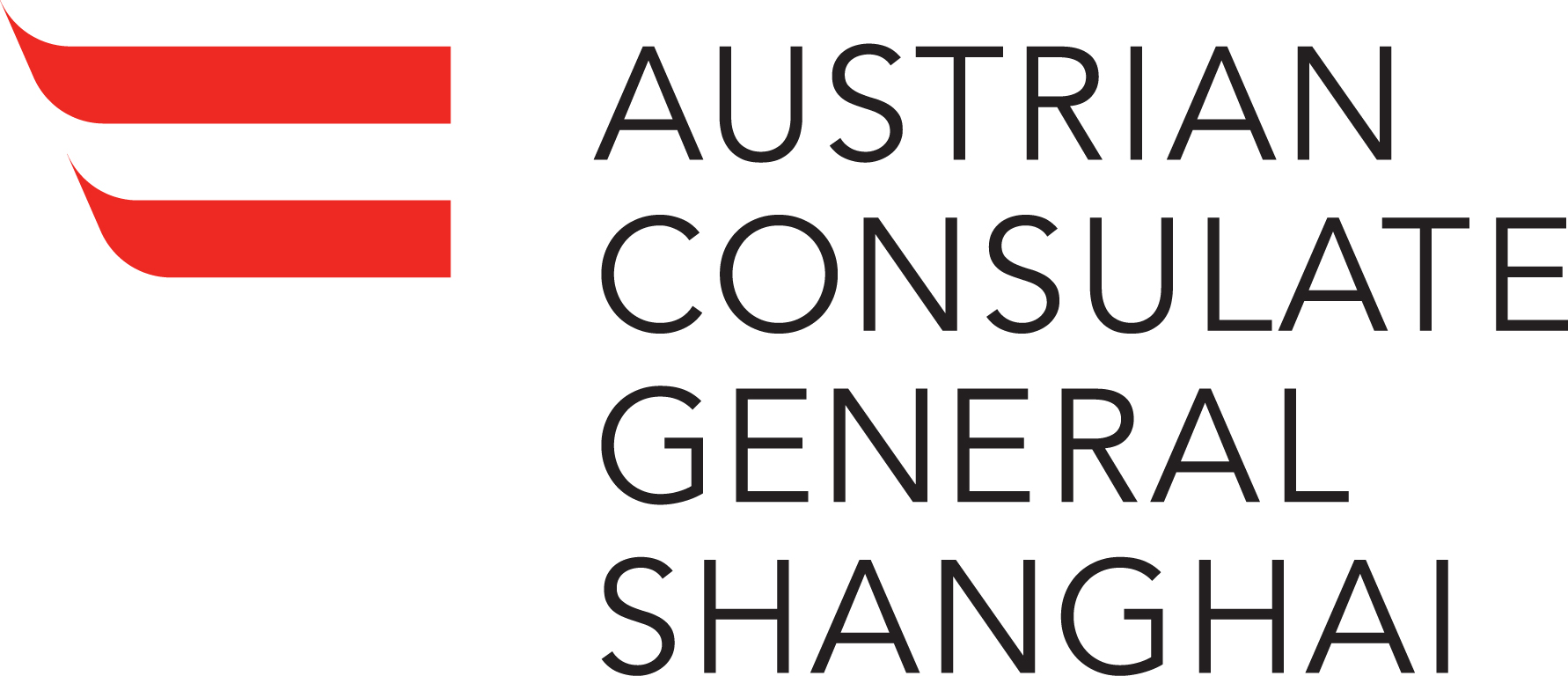Andreas Weixler
WaterGhosts for Longyou
(2017)
07:21 computer, audiocard, multichannel speaker
excerpt:
https://soundcloud.com/aweixler/waterghosts-excerpt
full length stereo version:
http://avant.mur.at/download/Waterghosts/WaterGhosts_full_stereo.mp3
full length stereo version uncompressed:
http://avant.mur.at/download/Waterghosts/WaterGhost_Full4416.aif
5 channel full length version:
http://avant.mur.at/download/Waterghosts/WaterGhosts__full_5.0_4824.aif
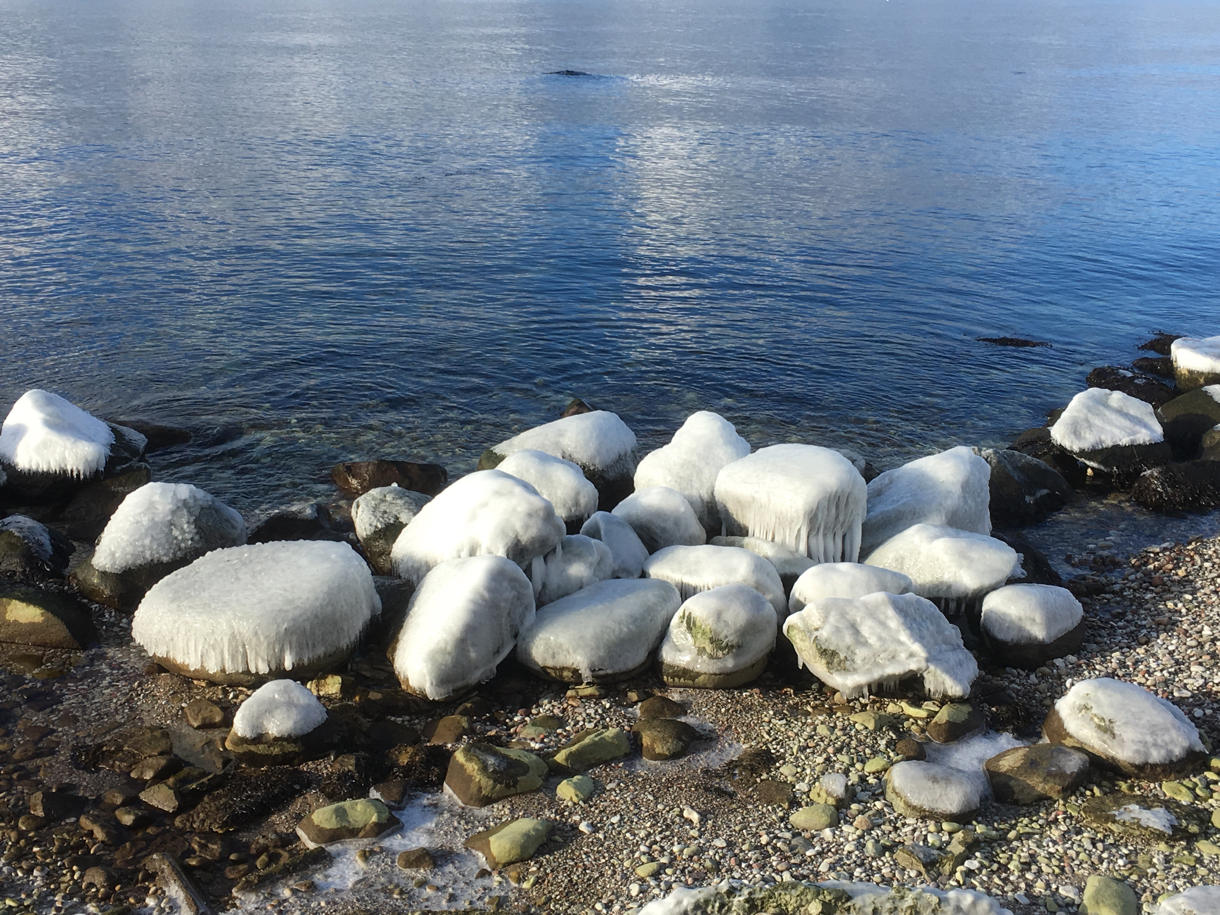
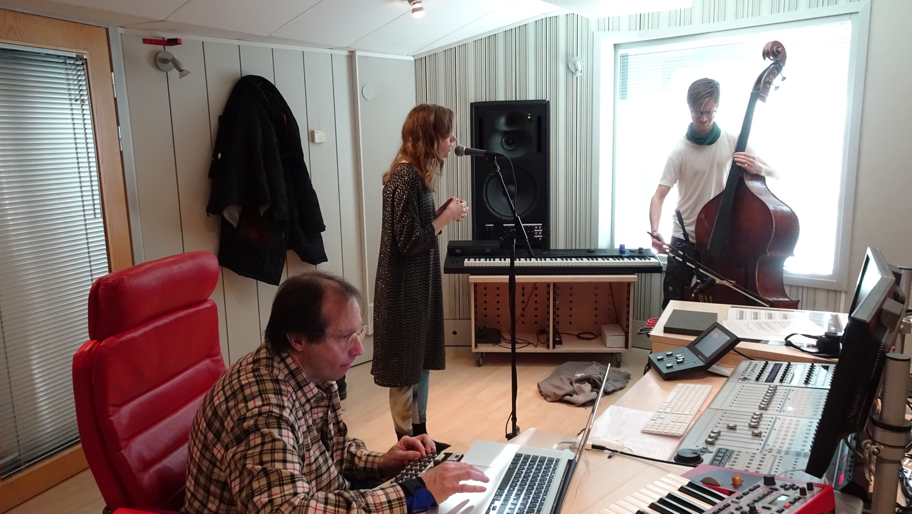 © Andreas Weixler
©
Se-Lien Chuang
© Andreas Weixler
©
Se-Lien Chuang
concert on Friday 25.10.2019:
programm note
WaterGhosts
Andreas Weixler 2017 VICC
5 channel electroacoustic composition based on contemporary
instrumental sounds and vocals
composed 2017 at VICC - Visby Internationale Centre for Composers,
Sweden
WaterGhosts was created in the Studio Alpha of VICC during a
composer in residence in February 2017. All electronic sounds are
based on recordings of acoustic instruments. A multichannel
realtime audio processing studio session of voice and double bass
gave gestural movements of acoustic as well as generated
electronic sounds in a mutual improvisation. Recordings of
the acoustic sounds of low drums and a trombone are then altered
by the same max msp live processing of granular synthesis and
stochastic spatialisation. The compositions is then completed by a
Petzold subcontrabass recorder audio processing in the studio to
configure a spatial composition in an organic soundscape.
Jonny Axelsson (S), low drums and Ivo Nilsson (S),
trombone,recorded 2016 in Stockholm, Sweden.
Matilda Andersson (S), vocal and Jonas Nilsson (S), double bass
and Andreas Weixler (A) live electronics are recorded 2017 in
Studio Alpha VICC, Visby, Gotland, Sweden.
Julia Russer (GER), Petzold subcontrabass recorder, recorded at
the Computer Music Studio in Linz, Austria 2014. All recordings
and electronic processing by the composer.
world premiere: Sonorities festival, SARC Belfast, 22. April 2018.
further premiere: ICMC - International Computer music Conference,
New York City 2019
Version for Longyou Grotto 2019 contains a multichannel realtime
spatialisation in Cave 2
Andreas Weixler
born 1963 in Graz, Austria, is a composer with an emphasis on
audiovisual interactivity. He is teaching computer music as well
as music and media technology as an associate university professor
and director of the Computer Music Studio CMS at Anton Bruckner
Private University, where he initiated the development of the
computer music studios and intermedia multichannel computer music
concert hall, Sonic Lab. He is also teaching as a Senior lecturer
at the mdw - University of Music and Performing Arts - in Vienna
at the Department of Composition, Electroacoustics and Tonmeister
Education he is as well as a lecturer for audiovisual interactive
projects at InterfaceCulture at the University of Arts in
Linz.
His concepts led to invitations to
performances, presentations and lectures in Europe, Asia, North
and South America.
2018 Andreas Weixler was awarded as the best European piece by the
International Computer Music Association (ICMA) together with
Se-Lien Chuang for their audiovisual work.
Selections for ICMC 2019 New York, 2018 Daegu, 2017 Shanghai, 2016
Utrecht, 2014 Athens, 2013 Perth, 2012 Ljubljana, 2011
Huddersfield, 2010 New York, 2008 Belfast, 2007 Copenhagen; NIME
2017 Copenhagen, 2015 Baton Rouge, 2007 New York City; ISEA 2016
Hongkong, 2008 Singapore, 2002 Nagoya as well as for several
NYCEMF, SICMF, Sonorities, SMC, ars electronica among others.
Currently he is specializing in intermedia concerts of
improvisation simultaneously with realtime multichanneling audio
processing.
http://avant.mur.at
Karlheinz Essl
river_run (2016) for Guzheng and live-electronics
12:07 1
AKG
C411 contact microphone,
audiocard, computer
http://www.essl.at/works/riverrun.html
Video demo:
https://youtu.be/o9_z38DOWgw
audio demo:
https://soundcloud.com/karlheinz-essl/river_run
score:
http://khz96.org/sco/riverrun-guzheng.pdf
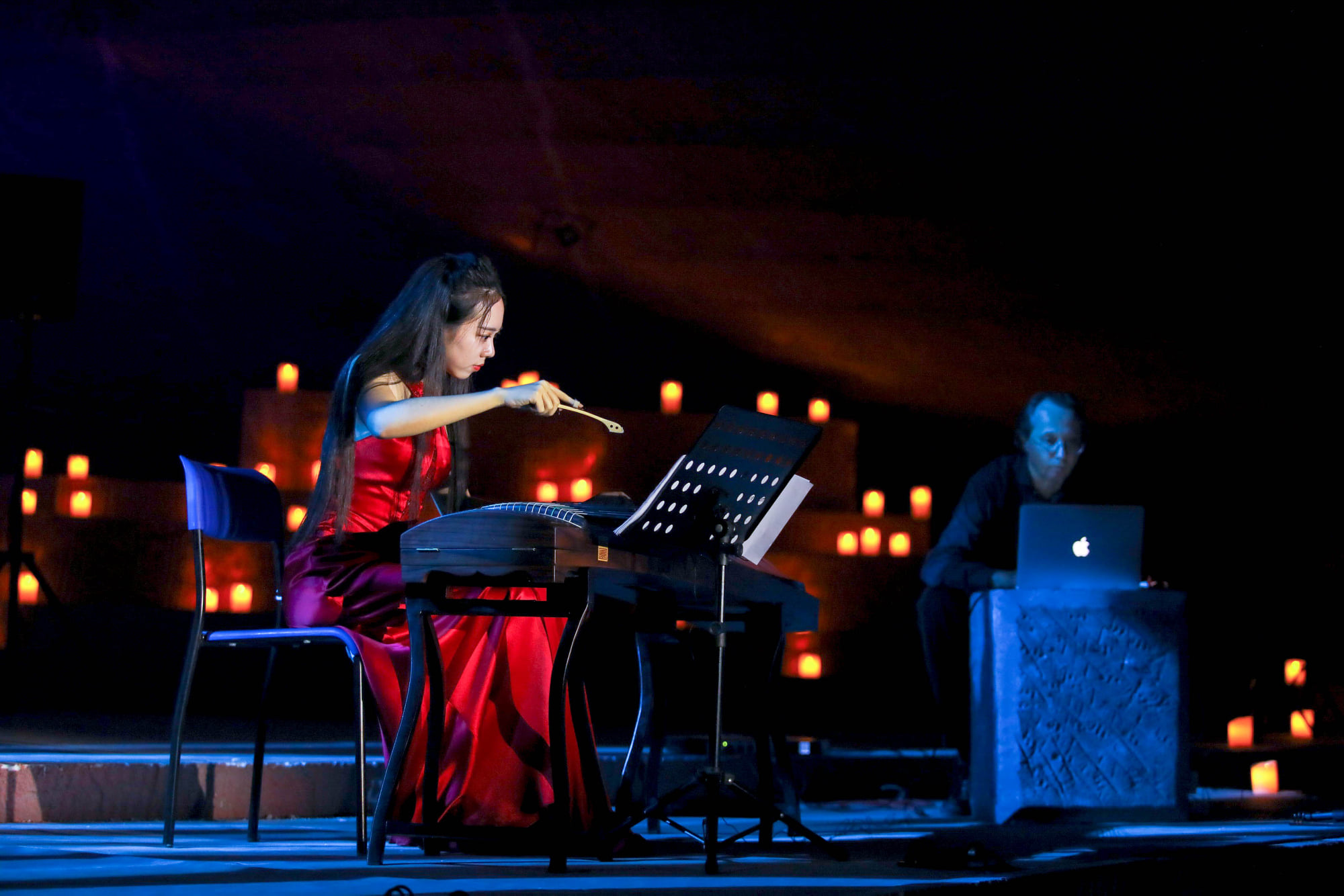 Guzheng: Gu Wen Qi 頋文麒 (古箏)
Guzheng: Gu Wen Qi 頋文麒 (古箏)
live electronic: Andreas Weixler
Foto © Longyou Grotto Music Festival
concert on Friday 25.10.2019:
programm note
Karlheinz Essl
river_run (2016) for Guzheng and live-electronics
The Guzheng is an old Chinese instrument
with 21 plucked strings. Its characteristic sound is strongly
determined by a pentatonic tuning which evokes numerous clichés.
In order to avoid them, I created an uncommon scordatura that
combines Asian pentatonic with European chromaticism. Thanks to
the live-electronics, the sound of the Guzheng can be transformed
from orchestral aggregations to bell-like timbres.
These interventions generate an unstable equilibrium between
instrument and electronics, East and West, old and new. At certain
points, memories of Schubert, Mahler, Berg and Deep Purple float
to the surface before they are washed away by the stream of
sounds.
Guzheng:
Gu Wen Qi 頋文麒 (古箏)
live electronic:
Andreas Weixler
Karlheinz Essl
Born in Vienna, 15 Aug 1960. Austrian composer, performer,
improviser, media artist and composition teacher.
Karlheinz Essl attended the Vienna Musikhochschule (1981-87),
where he studied composition with Friedrich Cerha and
electro-acoustic music with Dieter Kaufmann. From 1979, he also
studied musicology and art history at the University of Vienna
(doctorate 1989 with his thesis Das Synthese-Denken bei Anton
Webern). Active as a double bassist until 1984, he played in
chamber and experimental jazz ensembles. As a composer he has
contributed to the Projekt 3 composition programming environment
of Gottfried Michael Koenig at Utrecht and Arnheim (1988-89) which
later transformed into his own Real Time Composition Library
(RTC-lib) for Max/MSP/Jitter.
Essl also served as composer-in-residence at the Darmstadt summer
courses (1990-94) and at IRCAM (Paris, 1992-1993). Between
1995-2006 he taught Algorithmic Composition at the Studio for
Advanced Music & Media Technology at the Bruckner University,
Linz. Since 2007, he is professor of composition for
electro-acoustic and experimental music at the Vienna University
of Music and Performing Arts. Between 1992 and 2016, he acted as
the music curator of the Essl Museum in Klosterneuburg / Vienna.
His work with computers (with emphasis on Algorithmic Composition
and generative art) and a prolonged occupation with the poetics of
serial music have been a formative influence on his compositional
thinking. He has frequently sought to combine music with other
genres and has collaborated with the graffiti artist Harald
Naegeli (Partikel-Bewegungen, 1991), the writer Andreas Okopenko
and the artists' group "Libraries of the Mind" (Lexikon-Sonate,
1992--8), the architect Carmen Wiederin (Klanglabyrinth, 1992-95),
the video artist Vibeke Sorensen (MindShipMind, 1996, a multimedia
installation for the Internet) and the artist Jonathan Meese
(generative video and sound environment FRÄULEIN ATLANTIS, 2007).
During the 1990s Karlheinz Essl carried out various projects for
the Internet and became increasingly involved with improvisation.
At the festival WIEN MODERN 1989 he presented as an emerging
composer, and in 1997 he was featured at the Salzburg Festival
with portrait concerts and sound installations. In 2003, he was
artist-in-residence of the festival musik aktuell, and in 2004 he
was presented with a series of portrait concerts at the
Brucknerhaus Linz. In 2004, Karlheinz Essl received the cultural
prize for music of the state Lower Austria. Besides writing
instrumental music, Karlheinz Essl also works in the field of
electronic music, interactive realtime compositions and sound
installations. He develops software environments for algorithmic
composition and acts as a performer and improviser, utilzing his
own computer-based real time composition environment m@ze°2 and
also instruments like electric guitar, toy piano and music box.
http://www.essl.at
Se-Lien Chuang
double fancy for Longyou caves
(2019)
multichannel electroacoustic composition
12:00 computer, audiocard, multichannel speaker
full stereo version mp3:
http://avant.mur.at/download/chuang_doublefancy_Longyou/double_fancy_for_Longyou_caves_ChuangSL_stereo.mp3
full stereo version wav:
http://avant.mur.at/download/chuang_doublefancy_Longyou/double_fancy_for_Longyou_caves_ChuangSL_stereo.wav
16 multichannel tracks:
http://avant.mur.at/download/chuang_doublefancy_Longyou/16channel_mono_16bit_44_1kHz_wav.zip
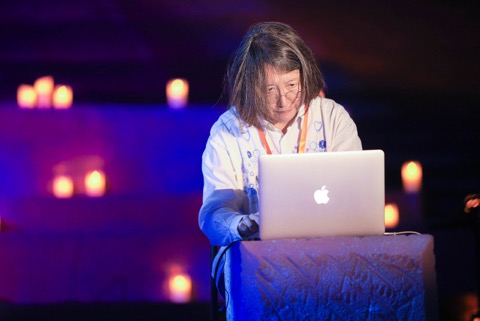
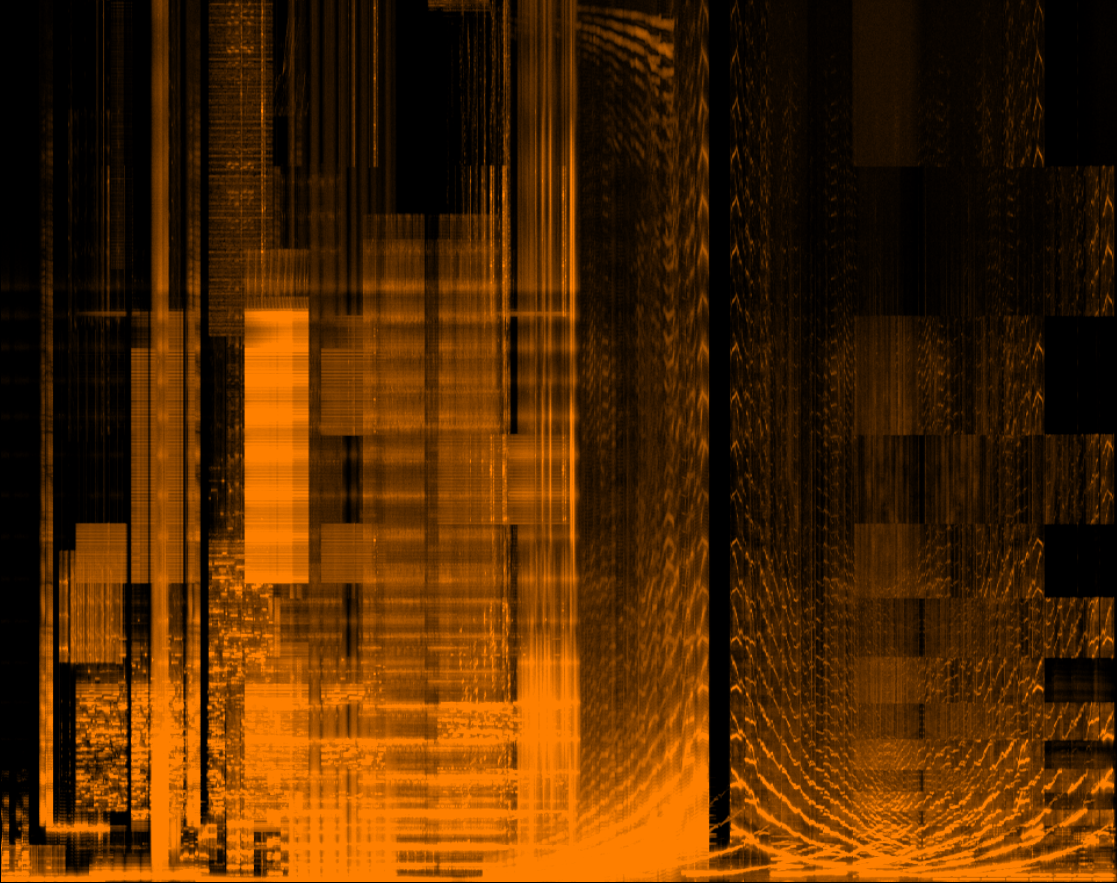 Foto © Longyou Grotto Music Festival
screenshot © Se-Lien Chuang
Foto © Longyou Grotto Music Festival
screenshot © Se-Lien Chuang
concert on Friday 25.10.2019:
programm note
Se-Lien Chuang
double fancy for Longyou caves
(2019)
multichannel electroacoustic composition
The sonic crossings happen within contemporary composition,
improvisation, physical playing technics and digital audio
processing.
The spatialization and the application of the varied
reverberations go within the in-situ alliance as the sounding
opposes the musical experience, the extrinsic encounters the
acquainted, last but not least, the unnoted poses the noted. All
electronic sounds are transformed from the recordings of acoustic
instruments. I would like to acknowledge especially and
respectively to clarinet duo Petra Stump (Austria) and Heinz-Peter
Linshalm (Austria). The sounds are recorded 2012 at Computer Music
Studio of Anton Bruckner Private University, Linz/Austria.
première, Longyou Festival 23.10. - 27.10.2019, Longyou caves /
Quzhou, Zhejiang Province, China
Se-Lien Chuang
composer, pianist and media artist, 1965 born in Taiwan, since
1991 residence in Austria. The artistic and compositional emphases
range from contemporary instrumental composition/improvisation,
computer music to audiovisual interactivity.
International productions, research stays and lectures as well as
numerous representations of compositions in Europe, Asia, North-
and South America: ICMC, SICMF Seoul, NIME, ISEA, IAMAS Japan, Ars
Electronica Linz, among others.
2016-2019 lecturer at Computer Music Studio, Institute of
Composition, Conducting and Computer Music at the Anton Bruckner
Private University for computer notation and contemporary playing
techniques.
Since 1996 jointly with Andreas Weixler running Atelier Avant
Austria, with key aspects in development of audiovisual
interactive systems and audio/visual realtime/non-realtime
processing, computer music and algorithmic composition.
http://avant.mur.at/chuang
Johannes Kretz
Quintessence II
(2011)
12:48 computer, audiocard, multichannel speaker
full version stereo mp3:
http://avant.mur.at/concerts/2019/LongyouGrotto/Kretz_Quintessence2.mp3
full version stereo aif:
http://avant.mur.at/concerts/2019/LongyouGrotto/Kretz_Quintessence2.aif
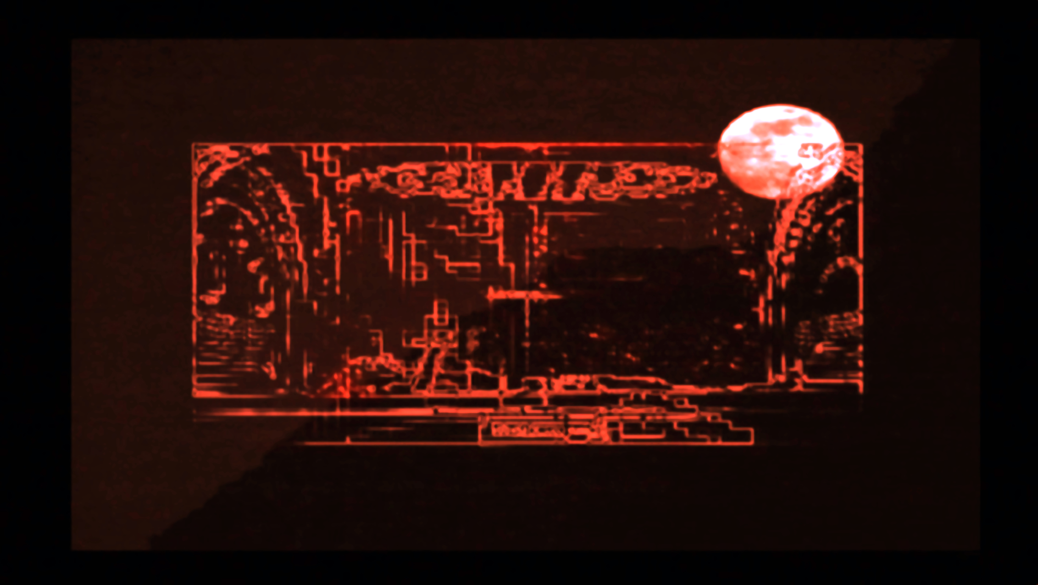 © Stewart Collinson
© Stewart Collinson
concert on Saturday 26.10.2019
:
programm note
Quintessence (from latin „quinta essentia“, fifth
element)
is also used in common language as synonyme for the nature of
something, the main point or thought. Originally in alchemy it was
also the name of aether. Already Aristotle had complemented the
theory of the four elements (fire, water, air and earth, as
constituting substances of all things) by the fifth element, which
is the basis of all the apparent elements in the world (fire,
water, air and fire), bing unchangeable and eternal, pervading
them all as purely immaterial essence. Today in physics
quintessence is a hypothetical form of dark matter being
postulated to explain observations of an accelerated universe.
The composition „Quintessence II“ by Johannes Kretz takes this
idea of a immaterial substance and tries to explore this
transcendental, appartenly bodyless quallity of synthtic soudns.
the latter have been mostly realised using the software
„Klangpilot“ developed by the composer.
spatialisation performer: Andreas Weixler
Johannes Kretz
http://www.johanneskretz.com
composer, electronics performer, artistic researcher
Born 1968 in Vienna.
Studies (composition, pedagogy) at the music academy Vienna with
F.BURT and M.JARRELL and mathematics at the University Vienna •
1992/93: studies at IRCAM, Paris with Marco Stroppa and
Brian Ferneyhough. 1994-2003 Assistant/Professor for computer
music at the International Bartok Seminar in Szombathely (H) •
1996-2001 Teacher for music theory and composition at the
conservatory of Vienna since 1997: teacher for for computer music
at the university for music and performing arts Vienna (mdw),
since 2001 also music theory, since 2004 also composition, since
2009: habilitation in composition, associate professor • Since
2008: Head of ZiMT ("center for innovative music technology") of
mdw, since 2013 dean/head of department of the Institute for
composition and electro-acoustics of mdw • 2018-2021: project
leader of "creative (mis)understandings, a 3-year artistic
research project funded by FWF-PEEK.
Founding member of NewTonEnsmble Vienna, of the European Bridges
Ensemble, the international composers group PRISMA, of the
performance duo TOUCHING, and of ikultur.com. Co-curator of
aNOther festival Vienna together with Wei-Ya Lin und Mahdieh
Bayat.
Scholarships and Awards: e.g. Austrian Federal Grant 1997,
Stiftung Delz (CH, 2001), Theodor Körner Prize 2004
Commissions of work & performances at/with National Theater
Hall, Taipei, Wien modern festival, Festival Ars Electronica,
Konzerthaus Wien, Eclat festival Stuttgart, Klangforum Wien,
Ensemble On Line, Vienna Flautists, quartett22, Internationale
Lemgoer Orgeltage, Haller Bachtage, Triton Trombone Quartett,
Wiener Kammerchor
Performances in Austria, Germany, Poland, France, Czechia,
Hungary, Turkey, Latvia, Lithuania, Argentinia, Mexico, Canada,
USA, Japan, South Korea, Taiwan, China, Uzbekistan, Iran, India.
lecture
25.10.2019, Guanghe Radisson
SEMINAR by Andreas
Weixler & Se-Lien Chuang
"realtime - non realtime – audiovisual processing in
composition and performance“
In the
Austrian part of the seminar, we also presented the computer
music concert halls in Graz, Linz and Vienna with the associated
institutions together with an insight of our artistic work:
AAA -
realtime non-realtime works by Atelier Avant Austria
IEM -
Institute of Electronic Music and Acoustics
and the
Cube and the MUMUTH at the KUG - University of
Music and Performing Arts Graz
IKE -
Institute for Composition, Electroacoustics and Sound Engineer
Training
and the
Future Art Lab at the mdw - University of Music and
Performing Arts Vienna
CMS -
Computer Music Studio and
the Sonic
Lab at the Anton Bruckner Private University in Linz
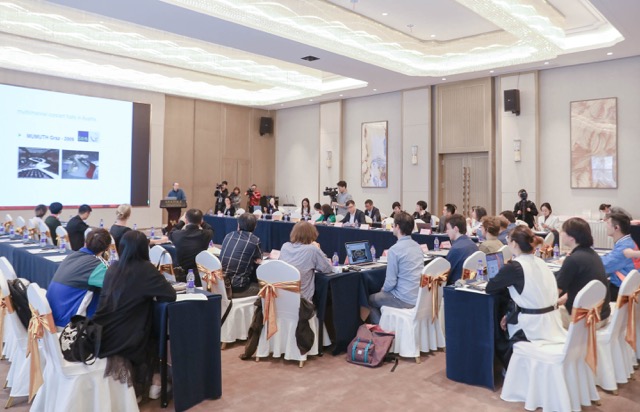
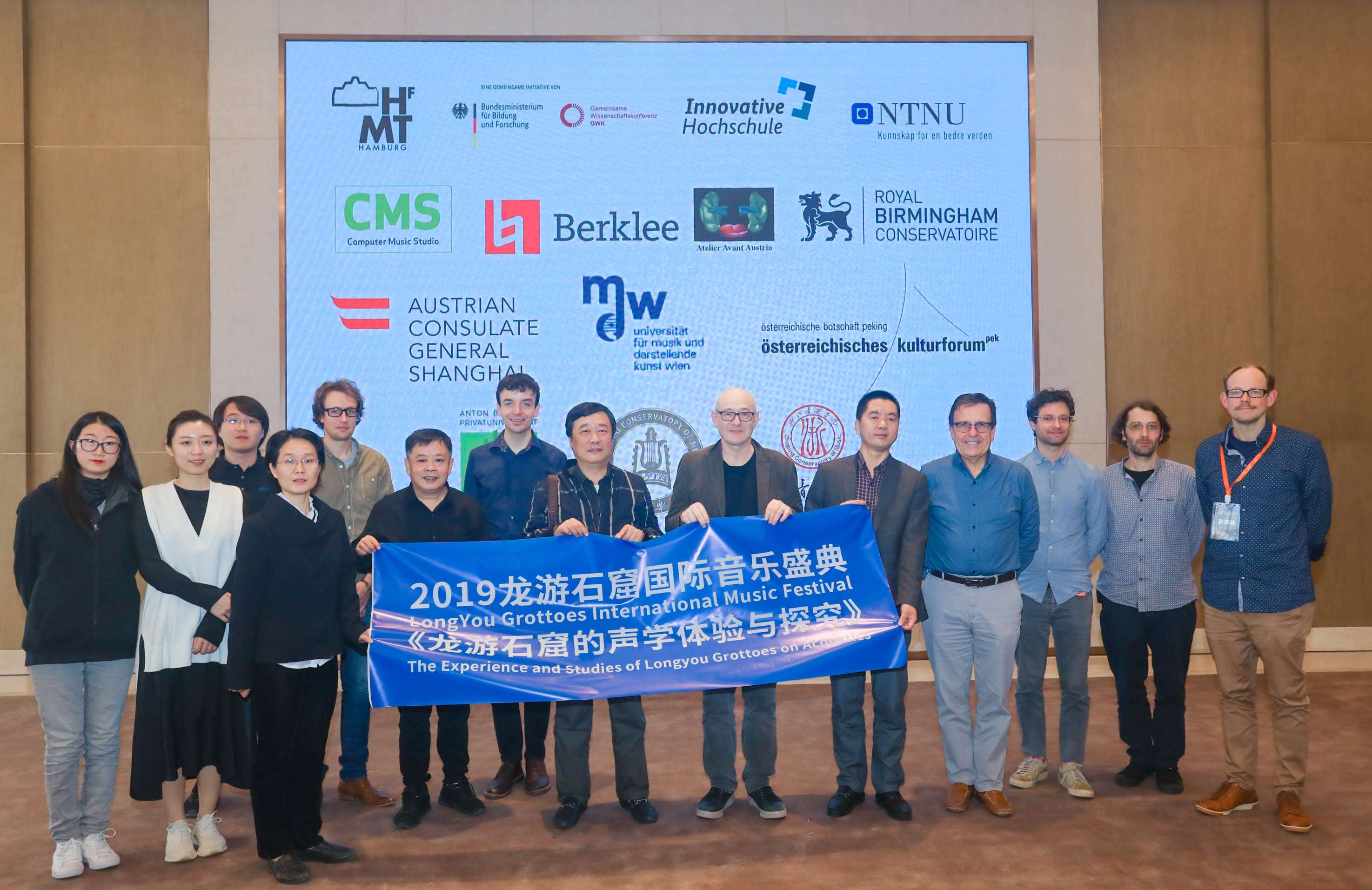
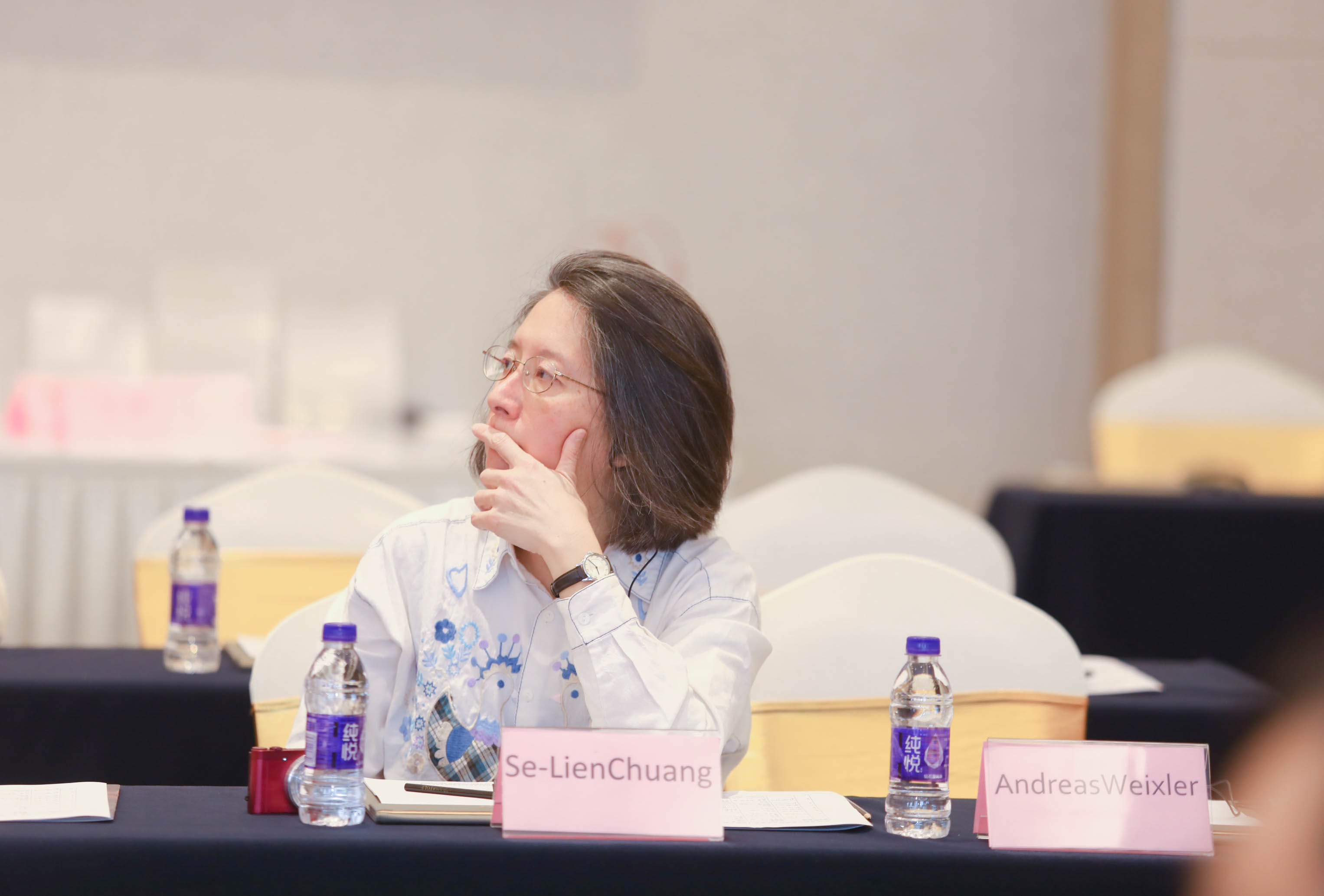
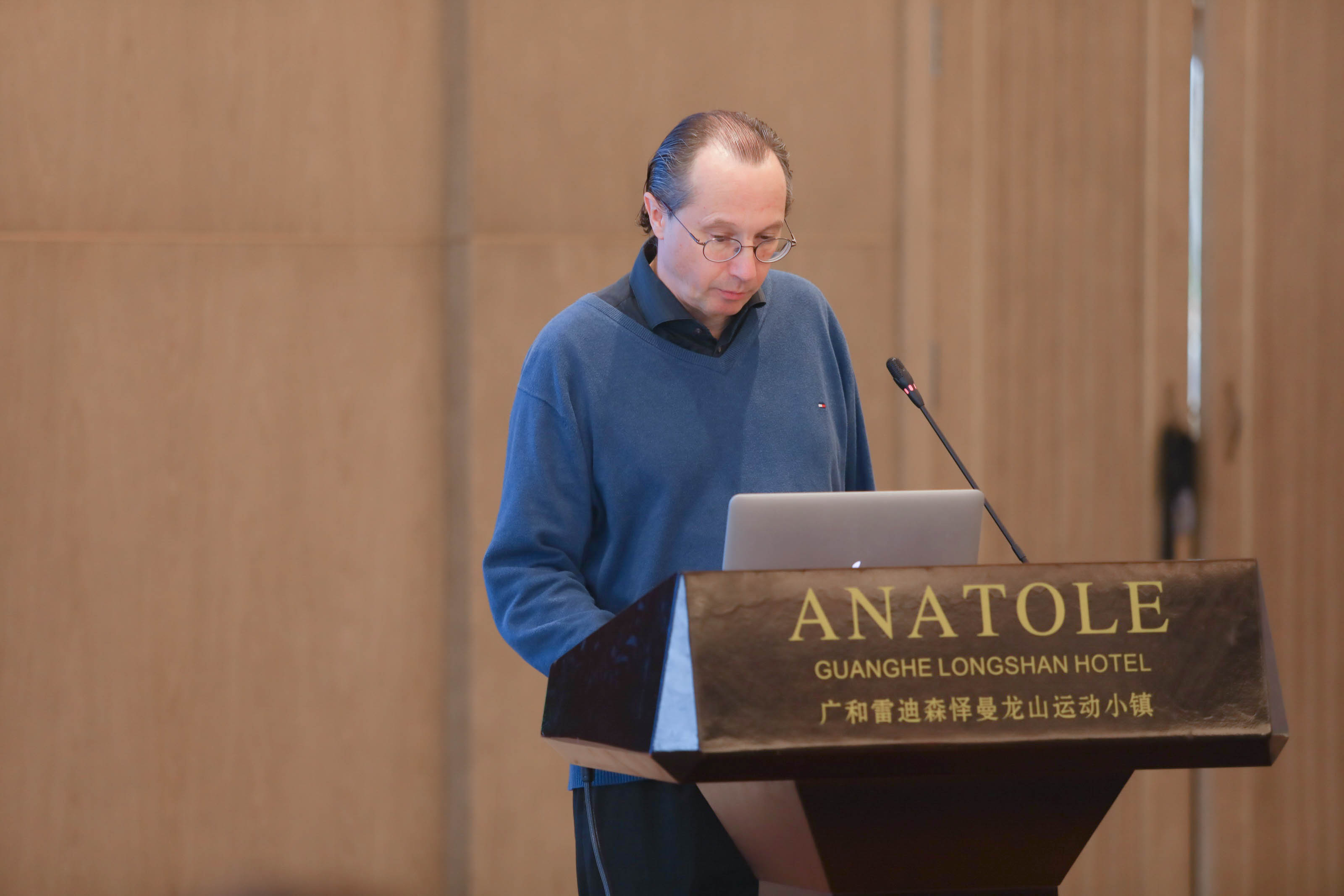
Fotos © Longyou Grotto Music Festival
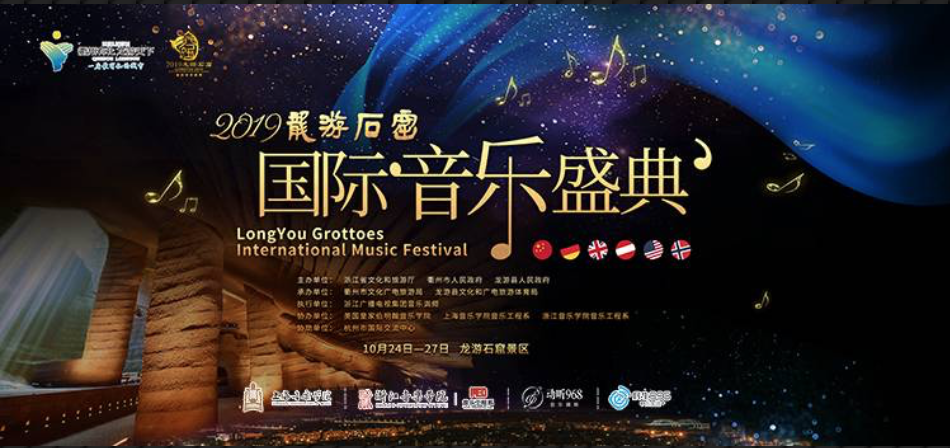

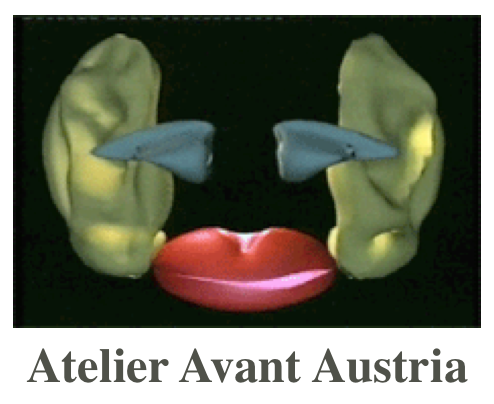

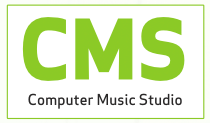
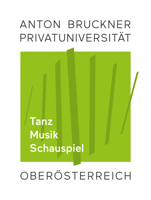
 Foto © Longyou
Grotto Music Festival
Foto © Longyou
Grotto Music Festival






